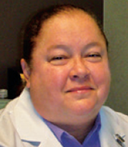It has always been my opinion that nurses are often expected to be the healthcare professionals who “do everything.” After much frustration with this over the years, I have come to understand that nurses are one group that will complete a task, do it right, and take ownership of the results. They will also report back to whomever assigned them the task and be willing to do more. In essence, nurses are often the catchall of the healthcare world. When a physician needs something, even if it is a phone number, the first assistant they look for is a nurse. When a patient needs something, they call their nurse. The result of this over the years is that nurses take on tasks that may be better served by non-nurses leaving insufficient time for nurses to complete tasks that require the training and experience of a nurse. Unfortunately, patient care is affected when nurses become short on time, distracted, and exhausted.
One of my first staff nurse positions was in a hospital in Detroit working 12-hour shifts in the Medical Intensive Care Unit (ICU). This was a 6-bed unit and each patient, each shift, had 1 nurse. This never deviated. Every nurse cared for 1, and only 1, patient. I remember the satisfaction of knowing that each shift I was able to accomplish everything that my patient and their family needed, even trimming their nails. I never left work haunted by worries of missed medications, forgotten documentation, or patient neglect. This all changed somewhere in the mid-1990s. Someone in the organization targeted nursing hours to cut the budget. First, ICU nurses each maintained their 1 private patient but also assumed ½ care for a second patient; “shared” a patient with another nurse resulting in 2 nurses for every 3 patients rather than 3. I always pitied that “shared” patient as they didn’t have an owner. Soon this worsened to 2 patients per nurse. Although I have not staffed in an ICU for more than 20 years, I understand from younger colleagues that the current ratio of nurses to patients is at least 1:2.5, sometimes as bad as 1 nurse for 4 patients. It is not possible to give the level of care and attention to each patient with this staffing plan. Generally the result of this is that the nurse’s time and attention land with the most unstable patient and soon nurses become fatigued and seek other positions.
Another direct result of budget cuts in healthcare has been the growing list of tasks that now fall to the nursing group that is already doing more with less. This can include cleaning, phlebotomy, secretarial duties, serving food, and supervising others. Nursing is generally one of the largest budget items in a healthcare institution and thus traditionally targeted when budget cuts are necessary. It is not uncommon for nurses to spend a great deal of their time away from their patients completing tasks that could be assigned to non-nurses. Nurses have also incorporated electronic medical records into their world; something that has proven quite challenging and time-consuming for older nurses. Understanding that the average age of employed nurses is 45 years, and the greatest group of employed nurses is above 50 years of age, this is not a generation that grew up with computers and electronic devices. Still, when asked to do such, nurses have taken on this task and have incorporated electronic documentation into their roles.
Nurses must find a way to provide care that is safe, efficient, compassionate, and respectful. We must never lose sight of our primary purpose—assisting others who are in need to reach their health and wellness goals, and to support those who are dying. Patients are all someone’s loved one; each patient has a family, community, and circle of friends who care for them. They are not a number, a diagnosis, or a biopsy. When they are sick their independence is compromised and nurses should be their champions throughout their journey. Nurses must speak when our patients cannot and stand by them when they are alone. It has been well documented that the greatest fear of one who is dying is to be alone. Nurses must learn to delegate tasks when appropriate allowing them to be with their patients. Nurses must also sometimes be able to say no. Nurses should listen to their patients allowing the patient to set the plan and goals, not the medical team. I recall a great television commercial that ran years ago in the Detroit area for a healthcare system. The commercial was the Chief Nursing Officer of a large, multi- center healthcare system speaking to the camera. She said that in healthcare you pick your doctor, you pick your hospital, but you are assigned your nurse; the one who you spend all day with. Her point was that in her system you would receive the best nursing care and if you didn’t, she wanted to hear from you. It pointed out some truths—patients do not pick their nurse, and nurses are the ones who actually take care of patients.
Let’s pay attention to the details of what our patients need and find ways to meet their needs when they cannot.





